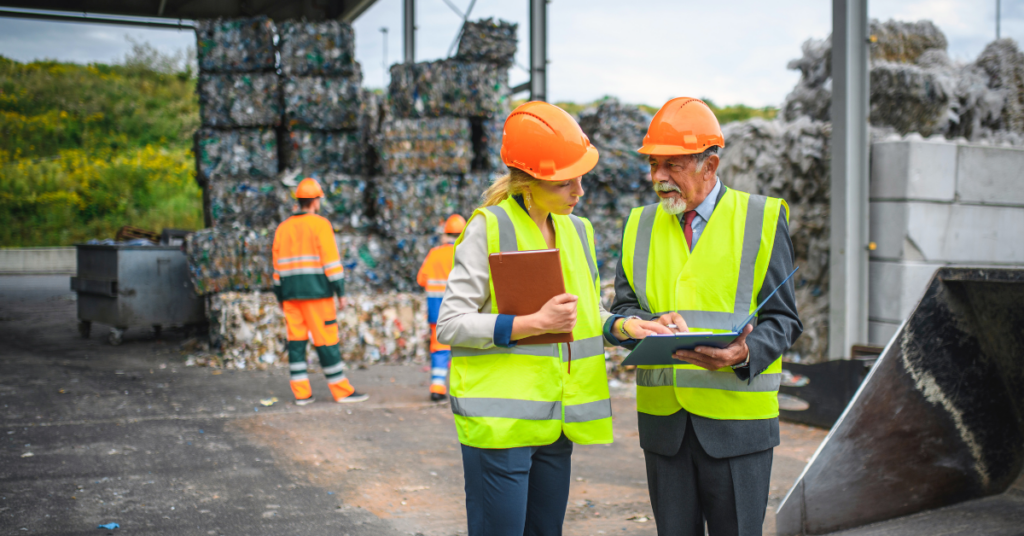On average, one person produces 1.63 pounds of waste every day. With the latest estimated world population sitting at 8,123,516,099, that’s 13,241,331,241 pounds of waste every single day. That’s a huge number that multiplies exponentially as the weeks, months, and years pass, so it’s vital to our planet that we implement efficient waste management services.
Waste management isn’t just about getting rid of trash. It’s a multi-faceted process that plays a huge role in upholding public health and the environment as a whole. Environmental cleanup companies like us are vital to this process. If we want to enjoy a clean future, we have to get a little dirty, so let’s dive into the world of waste!
What is Waste Management?
Just like the term “entertainment” is a sweeping generalization that covers plays, movies, games, and countless other activities, “waste management” is a pretty blanket term. It refers to the processes of collection, transportation, treatment, and disposal of waste. Not only are those four significant concepts, but they look different depending on which of the four types of waste we’re dealing with.
Types of Waste
- Municipal Waste: This refers to common household and commercial waste—food scraps, packaging, paper, and all the other stuff we throw away on a daily basis.
- Hazardous Waste: Often found in labs, medical facilities, and septic tanks, this type of waste contains harmful substances like chemicals, medical waste, and other toxic materials.
- Industrial Waste: This includes by-products from manufacturing processes—think metals and sludge, as well as the chemicals associated with them.
- Electronic Waste: This is a pretty straightforward term. It refers to discarded electronics like computers, phones, televisions, and batteries.
The Waste Management Process
Collection
Collection is the first step of most waste management services. It’s what you see when the garbage company collects your trash from the curb, but it also includes drop-off centers and specialized services for hazardous materials (hopefully you don’t see that last one too frequently in your day-to-day).
Transportation
Once trash is collected, it’s sent to an appropriate treatment facility using the most efficient and safest transportation methods. These could be trucks, railways, and even large ships. This is a crucial step in the process, as public health could be at risk should something go wrong. As for how the trash is disposed of, that’s dependent on the type of waste…
Treatment and Disposal
- Landfilling: The burial of waste in places like landfills that have measures in place that will prevent environmental contamination.
- Incineration: Certain types of waste are sent to incinerators, where they’re burned at high temperatures. This process is often used to generate energy.
- Recycling: Rather than being sent to a landfill, some materials can be processed and turned into new products. These materials include certain types of plastic, glass, and metal.
- Composting: Perhaps the most eco-friendly disposal method, this refers to the biological decomposition of organic waste into the earth, creating nutrient-rich soil!
The Impact of Proper Waste Management
Proper waste management services are often the difference between a clean environment and an unhealthy one. A growing concern these days involves our atmosphere being damaged by pollution, greenhouse gas emissions, and resource depletion. Improper handling of waste could taint air, water, and soil, which can have a negative effect on humans, wildlife, and entire ecosystems.
Say there’s a chemical spill when a tanker flips on the highway. The immediate threat may be to nearby traffic, but if these chemicals make their way into local communities by air or water, it could pose serious risk to the residents there. Similarly, an oil spill in the ocean could mean the end of countless ecosystems and animal populations. Case in point: The Deepwater Horizon Oil Spill in 2010.
Waste management can be costly, but the consequences resulting from a lack of it can be much more pricey. In addition, efficiency can actually reduce expenses, generate revenue, and even create jobs! Proper waste management services can make a significant impact on so many things around the world. Our aim is to make sure that impact is positive.
Conclusion
Waste management services cover a huge array of processes, all of which are essential to keep our planet and its inhabitants healthy. Understanding these processes, as well as their waste hierarchy and impacts, is important to all of us. While this responsibility falls on everyone in one way or another, it can’t work without skilled environmental cleanup companies capable of the heavy lifting.
As we continue to field challenges presented by waste types and quantities, awareness and innovation will play a vital role in developing sustainable solutions. When we work together, we can keep the planet clean. Get in touch with our professionals at Miller Environmental Group to learn more about our services and how you can make a difference!

